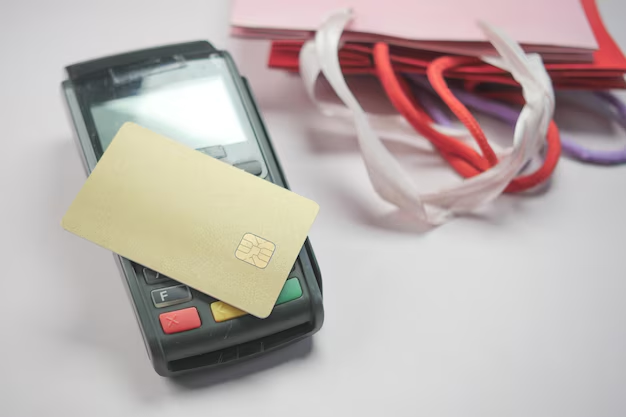Your Guide to Can a Debit Card Be Used As a Credit Card
What You Get:
Free Guide
Free, helpful information about Credit Cards FAQ and related Can a Debit Card Be Used As a Credit Card topics.
Helpful Information
Get clear and easy-to-understand details about Can a Debit Card Be Used As a Credit Card topics and resources.
Personalized Offers
Answer a few optional questions to receive offers or information related to Credit Cards FAQ. The survey is optional and not required to access your free guide.
Can You Use Your Debit Card Like a Credit Card? Discover the Facts
Have you ever stood at a checkout counter, poised to pay, only to wonder if you can use your debit card like a credit card? The ease of swiping a card—be it debit or credit—has transformed how we spend. The lines between these two payment methods may seem blurred, but understanding their nuanced differences can empower smarter financial decisions. Let’s delve into whether a debit card can truly be used as a credit card and explore related insights.
Understanding Debit and Credit Cards
Both debit and credit cards offer the convenience of cashless transactions, yet they fundamentally differ in operation. Recognizing these differences helps reveal possibilities and limitations of using one as the other.
Debit Cards:
- Withdraw Directly from your checking account.
- Often come with spending limits based on your account balance.
- Generally do not contribute to building a credit history.
Credit Cards:
- Provide a line of credit you can utilize for purchases, requiring repayment.
- Interest rates apply if the balance isn’t paid in full each billing cycle.
- Essential for establishing and improving credit scores.
Why You Might Consider Using a Debit Card Like a Credit Card
Though fundamentally different, debit cards can function similarly to credit cards during transactions, often thanks to integrated payment processing networks.
Key Scenarios & Motivations:
- Avoiding Debt: Utilizing your own money reduces the risk of accruing debt.
- Budget Control: Spending is limited to the amount available in your account.
- Lack of Credit History: Enables those without credit history to make card transactions.
- Fewer Fees: Typically, transactions on debit networks incur fewer fees than exceeding credit limits.
How Debit Transactions Work Like Credit
Authorization Process:
- When opting to process a debit card transaction as "credit", the merchant uses a credit card network (like Visa or Mastercard) to verify the transaction, not the bank's ATM network.
- Signature vs. PIN: Signing for a transaction instead of entering a PIN can mimic credit card processing.
Important Considerations
- No Financing Options: Since you're using your own funds, financing purchases isn’t an option.
- Bank Holds: Some transactions, particularly those involving rentals or accommodations, may place holds on your account, limiting access to cash.
Leveraging Debit Cards for Credit-Like Benefits
Despite lacking credit-building properties, debit cards can offer credit-like conveniences when used effectively.
Strategies to Maximize Benefits:
- Select “Credit” at payment terminals for wider acceptance.
- Transaction Security: Fraudulent transactions offer limited liability if reported promptly.
- Overdraft Protection: For emergencies, some banks offer overdraft options.
Growing Trend: Hybrid Cards
Several financial institutions now provide cards that blur the traditional lines between debit and credit, offering flexible repayment schedules or purchase protection similar to credit cards.
Comparing Account Implications
Debit Card:
- Direct Deduction from your funds.
- Typically fewer fees unless overdraft occurs.
Credit Card:
- Accumulating Balances can lead to interest charges.
- May offer rewards or cashback, which can indirectly increase your spending power.
Summary of Key Points
- 💳 Convenience: Debit cards can transact like credit with merchant systems.
- 💵 Immediate Fund Use: No credit limit constraints, as you use available cash.
- 🔀 Flexibility: Choose “credit” or “debit” on payment terminals for adaptability.
Building Financial Strategy with Cards
Blending Use: For individuals adept in managing their finances, using credit cards for rewards and debit for controlled spending balances benefits.
Pros and Cons Quick Reference
| Aspect | Debit Card | Credit Card |
|---|---|---|
| Controlled Spending | Direct from bank balance | Requires discipline to avoid overspending |
| Fraud Protection | Enhanced with timely reporting | Strong, with zero liability on rig decided uses |
| Potential Fees | Minimal transaction fees | Possible interest and late payment fees |
| Credit Building | Does not contribute to credit score | Integral for establishing credit history |
Conclusion Insights
In the digital age, the versatility of both debit and credit cards presents consumers with enhanced flexibility. While debit cards may not build credit, they offer a solid, real-time spending avenue that can often mirror a credit transaction’s convenience. Understanding how to leverage this function can lead to smarter financial management without forsaking credit card benefits. Remember, it's about finding what aligns with your financial habits and goals.
What You Get:
Free Credit Cards FAQ Guide
Free, helpful information about Can a Debit Card Be Used As a Credit Card and related resources.

Helpful Information
Get clear, easy-to-understand details about Can a Debit Card Be Used As a Credit Card topics.

Optional Personalized Offers
Answer a few optional questions to see offers or information related to Credit Cards FAQ. Participation is not required to get your free guide.


Discover More
- a Credit Card
- Am Eagle Credit Card
- Are Airline Credit Cards Worth It
- Are Credit Card Points Taxable
- Are Credit Card Rewards Taxable
- Can a Credit Card Company Sue You
- Can a Money Order Be Paid With a Credit Card
- Can a Secured Credit Card Build Credit
- Can Credit Card Companies Garnish Your Wages
- Can Credit Card Companies Sue You
